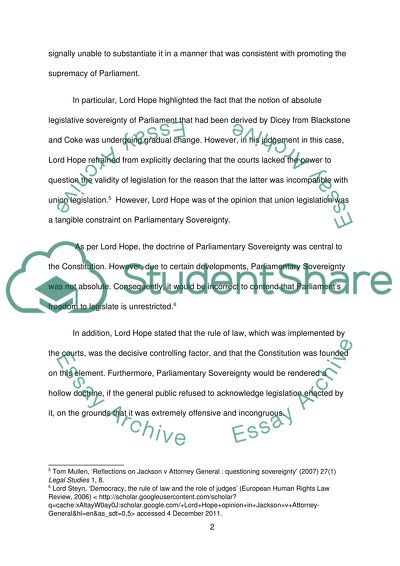Cite this document
(“Parliamentary sovereignty Essay Example | Topics and Well Written Essays - 1000 words”, n.d.)
Retrieved from https://studentshare.org/law/1438935-parliamentary-sovereignty
Retrieved from https://studentshare.org/law/1438935-parliamentary-sovereignty
(Parliamentary Sovereignty Essay Example | Topics and Well Written Essays - 1000 Words)
https://studentshare.org/law/1438935-parliamentary-sovereignty.
https://studentshare.org/law/1438935-parliamentary-sovereignty.
“Parliamentary Sovereignty Essay Example | Topics and Well Written Essays - 1000 Words”, n.d. https://studentshare.org/law/1438935-parliamentary-sovereignty.


